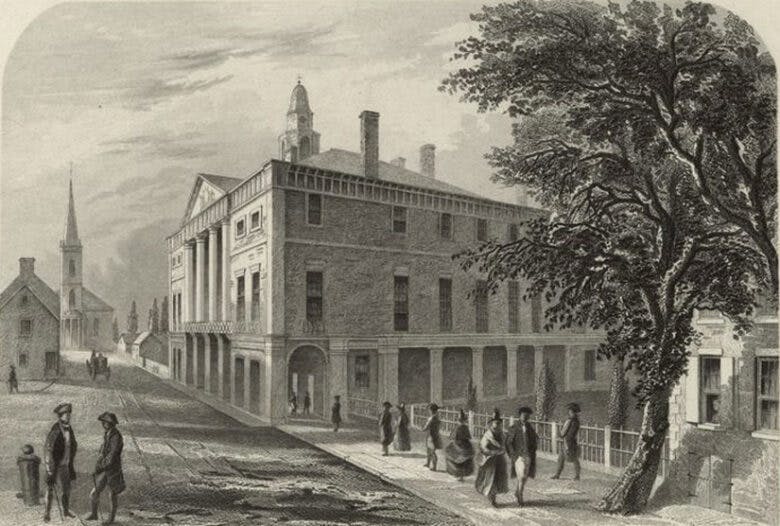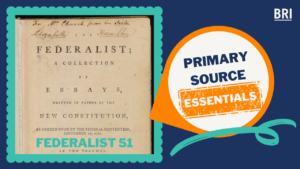Federalist 51
“It may be a reflection on human nature, that such devices [checks and balances] should be necessary to control the abuses of government. But what is government itself, but the greatest of all reflections on human nature? If men were angels, no government would be necessary. If angels were to govern men, neither external nor internal controls on government would be necessary. In framing a government which is to be administered by men over men, the great difficulty lies in this: you must first enable the government to control the governed; and in the next place oblige it to control itself. A dependence on the people is, no doubt, the primary control on the government; but experience has taught mankind the necessity of auxiliary precautions.
Writing Federalist 51
In this Federalist Paper, James Madison explains and defends the checks and balances system in the Constitution. Each branch of government is framed so that its power checks the power of the other two branches; additionally, each branch of government is dependent on the people, who are the source of legitimate authority.
Madison also discusses the way republican government can serve as a check on the power of factions, and the tyranny of the majority. “[I]n the federal republic of the United States… all authority in it will be derived from and dependent on the society, the society itself will be broken into so many parts, interests, and classes of citizens, that the rights of individuals, or of the minority, will be in little danger from interested combinations of the majority.” All of the Constitution’s checks and balances, Madison concludes, serve to preserve liberty by ensuring justice. Madison explained, “Justice is the end of government. It is the end of civil society.”
Madison’s political theory as expressed in this Federalist Paper demonstrated the influence of Montesquieu’s The Spirit of the Laws on the Founders.



